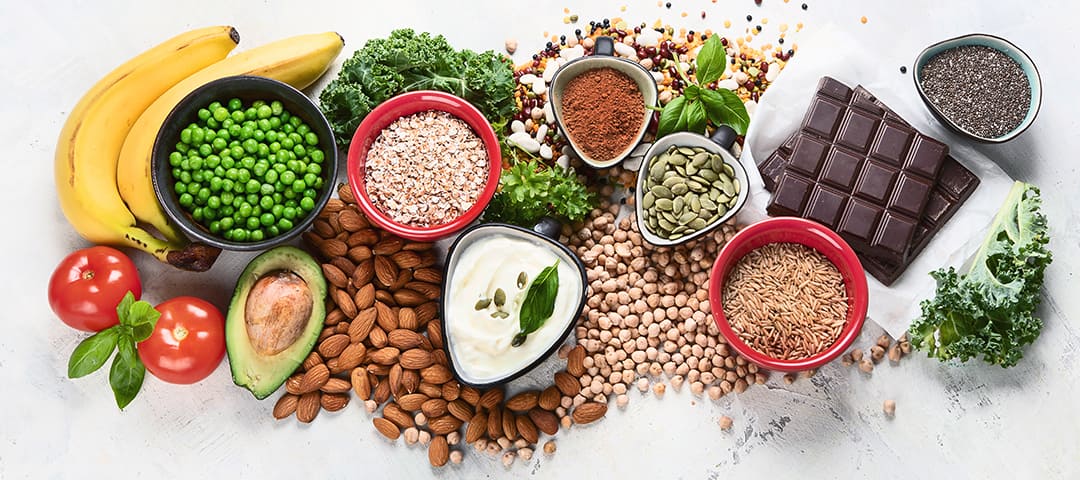
Newsletter
Newsletter
Higher Levels of Vitamins Associated with Lower Risk of Mortality Among Diabetics During Median 13.7 Years of Follow-Up

Getting enough vitamins is critical for diabetics, suggests a Frontiers in Endocrinology study published on September 19, 2023. The subjects included 484 adults with diabetes who participated in the 2003–2004 and 2005–2006 National Health and Nutrition Examination Survey (NHANES). The median age at the start of the study was 57 and a total of 211 deaths occurred during the 13.7-year median follow-up period.
There was a 58 percent lower risk of dying from any cause among participants who had the highest serum levels of the following nutrients:1
- Vitamin A
- Vitamin B6
- Vitamin B12
- Vitamin C
- Vitamin D
- Vitamin E
- Folate
- Beta-carotene
How can these nutrients help promote longevity, even in people with diabetes? It could be their role in supporting biological pathways and metabolic function.
“Vitamins, as coenzymes or antioxidants are involved in the metabolism of substances in the body, and can have an impact on the occurrence and development of diabetes when there is a deficiency or imbalance,” the authors explained.
When the effects of individual serum vitamin levels were examined, having low levels of vitamin A, vitamin C and folate was significantly associated with an increased mortality risk during follow-up. Vitamin D levels of 20.8 nanograms per milliliter or more and vitamin E levels of at least 38.9 micromoles per liter were significantly associated with a reduced mortality risk.
The research team subsequently evaluated the subjects in the study according to whether their serum levels of a group of vitamins were low, moderate or high. They found that having high serum levels of vitamins A, B6, B12, C, D and E, folate and beta-carotene was associated with an adjusted 58% lower risk of mortality from all causes during follow-up in comparison with low levels of these vitamins. Men, people 60 years and older and non-Hispanic Caucasians whose levels of the vitamins were high had significant reductions—58%, 47% and 74% respectively—in the risk of mortality compared with members of these groups whose levels were low.
Products
Apply What You’ve Learned: Diabetes
- In 2021, diabetes was estimated to affect 536.6 million adults worldwide between the ages of 20 and 79 years, among whom 6.7 million deaths occurred due to the disease or its complications.1,2
- Lifestyle changes can make a tremendous difference. A study that analyzed records from 112,493 men and women enrolled in the UK Biobank found an association between closely following the Mediterranean diet (which is rich in vegetables, fruit, whole grains, beans, nuts, herbs and spices, and olive oil, and includes moderate amounts of seafood and dairy) as well as other healthy dietary habits along with other healthy lifestyle factors, and a reduced risk of developing type 2 diabetes. The researchers remarked that the antioxidant and other properties of this diet, including vitamins, minerals and polyphenols, improve several factors associated with diabetes, including hemoglobin A1c levels.3
- Insufficient vitamin B6 may contribute to diabetes complications, including the formation of damaging advanced glycation end-products (AGEs).4 Glycation, the bonding of a sugar molecule to a fat, protein or nucleic acid molecule, increases with elevated blood sugar levels.
- Other nutrients that may be helpful in managing blood sugar levels in people with diabetes are Gynostemma pentaphyllum, white mulberry leaf, chromium, omega-3 fatty acids and cinnamon.5-12
References
- Zhou L et al. Front Endocrinol (Lausanne). 2023 Sep 19 ;14 :1254133.
- Sun H et al. Diabetes Res Clin Pract. 2022 Jan :183 :109119.
- Maroto-Rodriguez J et al. Cardiovasc Diabetol. 2023 Oct 4 ;22(1) :271.
- Mascolo E et al. Int J Mol Sci. 2020 May 23;21(10):3669.
- Huyen VTT et al. Evid Based Complement Alternat Med. 2012 :2012 :452313.
- Ramos JGM et al. F1000Res. 2021 Oct 8 :10 :1022.
- Lown M et al. PLoS One. 2017 Feb 22 ;12(2) :e0172239.
- Suksomboon N et al. J Clin Pharm Ther. 2014 Jun;39(3):292-306.
- Sarbolouki S et al. Singapore Med J. 2013 Jul;54(7):387-90.
- Ogawa S et al. Tohoku J Exp Med. 2013;231(1):63-74.
- Qian F et al. Diabetes Care. 2021 May ;44(5) :1133-1142.
- Zare R et al. Clin Nutr. 2019 Apr;38(2):549-556.
Featured Life Extension Magazine® Article
Protect Your Canine Companion
By Michael Downey
Many dog “parents” are unaware that commercial pet foods may not provide enough of the nutrients animals need to thrive. Our canine companions may benefit from extra vitamins and other nutrients to support optimal health. In addition to multivitamins, specific nutritional formulas have been developed that target dogs’ individual needs. Nutrients that support dogs’ skin and coat, hips and other joints, or emotional health (which may be impacted by stress, anxiety, insomnia and phobias) can help improve their quality of life.
The aging process that occurs in dogs can reveal a lot about human aging. The Dog Aging Project could help improve the lives of both dogs and humans. The project aims to enroll 60,000 dogs of all breeds and sizes, in all U.S. locations.
Read Full Article
What's Hot
Health Concern
Vitamin D intake and vitamin D levels associated with decreased insulin resistance among diabetics
Findings from a meta‑analysis and systematic review published July 31, 2023, in the Nature journal Scientific Reports add evidence to an association between higher serum vitamin D levels or treatment with vitamin D and improved insulin, glucose and insulin resistance in people with type 2 diabetes.

Diabetes and Glucose Control
This protocol explains the difference between type 1 and type 2 diabetes, and how elevated blood sugar, even within the normal range, can damage tissues throughout the body.
Related Life Extension Magazine® Articles

Safely Manage Blood Sugar Levels
Scientists have identified plant-derived ingredients and minerals that can reduce blood glucose levels and improve insulin sensitivity.

Magnesium's Role in Fighting Type II Diabetes
Clinical studies show that magnesium can improve glycemic control and insulin sensitivity in those at risk for or with type II diabetes.
Life Extension Magazine® Issue Now Online
A remarkable number of healthy-longevity findings have been published over the past 18 months.




